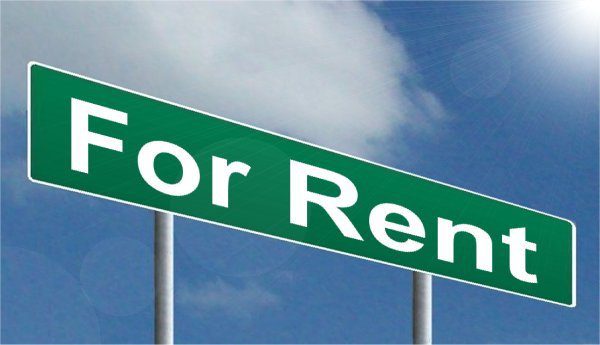
You may be looking for an investment property, but you have little or no information to go on as to who owns it or manages it. Or, you may have a complaint against a neighbour, and you need to communicate it to the property manager.
Knowing who manages a rental property can come in handy in plenty of ways, whether you’re an investor, an annoyed neighbour, or a potential tenant.
In this guide, we’ll show you how to find out who manages a rental property, even if you’re dealing with a faceless property management company.
5 Ways to Find Out Who Manages a Rental Property
You don’t only have one, but five different ways to find out who manages a rental property. Here’s a roundup:
1. Direct Communication
Initiating direct contact with the landlord or tenant can often provide the quickest and most accurate information.
Whether it’s a phone call, email, or a good old-fashioned knock on the door, reaching out to the people living on the property might just yield the answers you seek.
Plus, it’s a chance to strike up a friendly rapport with the person who holds the keys.
However, take care not to impose on their privacy or ask unnecessary questions. Choose an appropriate time of the day, and don’t stay for too long if you get the answer you need.
2. Online Property Databases
When it comes to fishing out property management information, online databases can be your best friend.
Websites like Search Commercial, Landchecker.com, or even local property management company websites often provide valuable details about who’s managing the property you have an eye on and the real estate agents associated with it.
There are also some free resources, like SQM Research.
With just a few clicks, you can find out who the property owner or management company is. You may also be able to get contact details and even reviews from other tenants.
Before you start browsing these sites, a word of caution: not all online databases are created equal. Some might require you to create an account or pay a fee for access to premium features.
Others may have limited information available, especially for smaller or privately owned properties. So, make sure to cast a wide net and explore multiple platforms to ensure you’re getting the most comprehensive picture possible.
3. Neighbours and Friends
Your neighbours and friends can be valuable sources of information when it comes to finding out who manages a rental property.
Strike up a conversation with your neighbours or reach out to friends who live in the same area. They may have insights or recommendations based on their own experiences with property management companies or landlords.
Sometimes, a simple chat over the fence or a casual mention during a social gathering can lead to valuable referrals or tips.
4. Public Records
Property registry websites are full of public records related to property ownership and management. These online platforms often provide searchable databases where you can input property addresses or parcel numbers to get detailed information.
From the name of the property owner to any associated property management companies, these records can help you find the key players behind the scenes.
5. Online Search
The most obvious option is to opt for search engines like Google, Bing, or Yahoo to uncover information about property management.
Start by entering relevant keywords such as the property address, landlord’s name, or property management company. You might stumble upon property listings, business directories, or news articles that mention the management entity.
You can also refine your search queries by adding modifiers like “property management” or “landlord” to narrow down the results and pinpoint relevant information.
Legal Implications You Should Be Aware Of
If you’re too impatient to find out who manages a rental property, you may find yourself susceptible to legal implications. There are boundaries that you should remember not to pass, or else you’ll be breaching someone else’s privacy.
Here are some things to remember while you’re searching for the property owner:
Respecting Tenant Privacy
When seeking information about who manages a rental property, it’s essential to prioritise tenant privacy rights. Tenants have a reasonable expectation of privacy in their homes, and their personal information should be handled with care and discretion.
Familiarise yourself with the legal framework governing tenant rights and privacy in your area.
Laws and regulations vary, but generally, accessing personal information about tenants without their consent may be restricted or prohibited. Make sure to stick to applicable laws and ethical standards throughout your search process.
Read on here for more tenants rights such as whether tenants can remove plants.
Compliance with Data Protection Laws
If you’re conducting your search in regions covered by data protection regulations like the General Data Protection Regulation (GDPR) or the Australian Privacy Act, ensure compliance with these laws.
Such regulations impose strict requirements on the collection, use, and handling of personal data, including information related to property management.
Safeguarding Privacy and Ethical Practises
Regardless of legal requirements, it’s essential to prioritise privacy and uphold ethical practises when accessing and using property management information.
Obtain consent when necessary, handle personal data securely, and refrain from engaging in any activities that could compromise tenant privacy or violate applicable laws.
Beware of False Property Managers
If you’re renting out a property, you’ll have to check whether the information provided by your potential tenants is true. That includes the rental history, lease data, and previous property managers.
Though not so common, some people may list false property managers. So, even if you find the name you’ve been looking for, It might get you nowhere.
If your agency can carry out background checks, you’ll be on the safe side. But if you’re a freelancer or don’t know how to verify the correct data, here are some steps to take:
Confirm Legitimacy
The first thing you should do is confirm that the property manager’s data is legitimate. To do so, look up their name or address, and you should find out whether they’re registered.
If it’s a property management company, your task will be easier because all similar companies have an online presence, so you should be able to verify the contact info easily.
Do a Tenancy Database Check
If you’re screening tenants for your property, you may want to be extra vigilant. In this case, looking up their previous property manager may not be enough. You can walk the extra mile and check a tenancy database.
These databases often list rental histories, so any issues flagged by previous landlords will be available. That way, you’ll be able to learn about your potential tenants. TICA is one solid example of these databases.
Final Thoughts
While trying to find out who manages a rental property, a mix of investigative techniques and legal awareness is key.
By using methods like direct communication, online searches, and community networks responsibly, you can get valuable insights while honouring privacy rights.
Remember, behind every rental property is a network of individuals—landlords, property managers, and tenants. If you know where to look or who to reach out to, you’ll find your property manager without any hassle.








